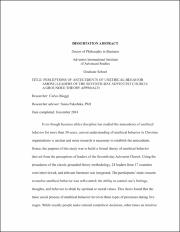| dc.description.abstract | Many adult language learners are less motivated to learn a new language because
they think it is too late, and they are not capable of doing it successfully. Nevertheless,
there are cases of adults who were able to attain a high level of speaking proficiency.
Their lived experiences have not always been explored in order to expand the current
knowledge on the Critical Period Theory. This multiple case study endeavored to analyze
the elements that have influenced the speaking proficiency development of successful
adult English learners. Three participants with 33, 35, and 37 years of age from South
America, Europe, and Africa were purposively selected according to specific criteria. The
instruments for data collection included semi-structured individual interviews,
Hashimoto’s survey questionnaire, and the Strategy Inventory for Language Learning.
The study focused on five specific elements: context, exposure to English in different
settings, the use of learning strategies, personality and affective characteristics, and
motivation. The major findings from the cross-case analysis revealed that adult learners
can develop a high English speaking proficiency level when they have high intrinsic
motivation and high self-confidence, are aware of their learning process, and make
exposure to the target language intense. The study finishes with other conclusions and
recommendations for adult English learners, English teachers, and other researchers. | en_US |

